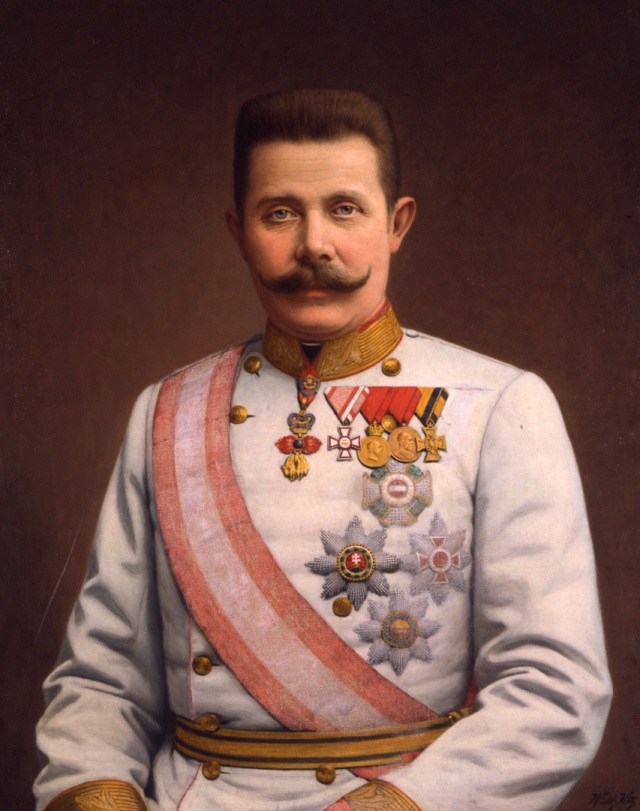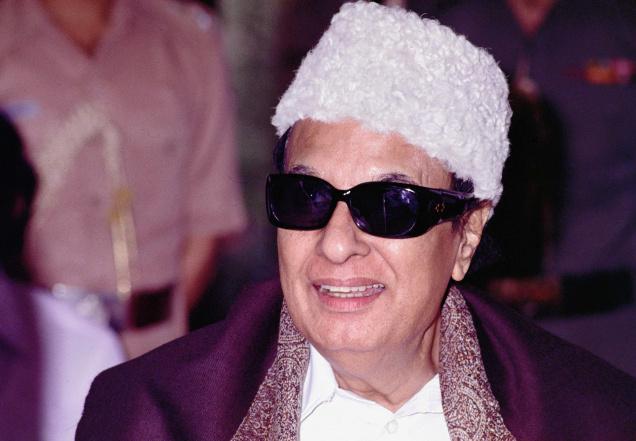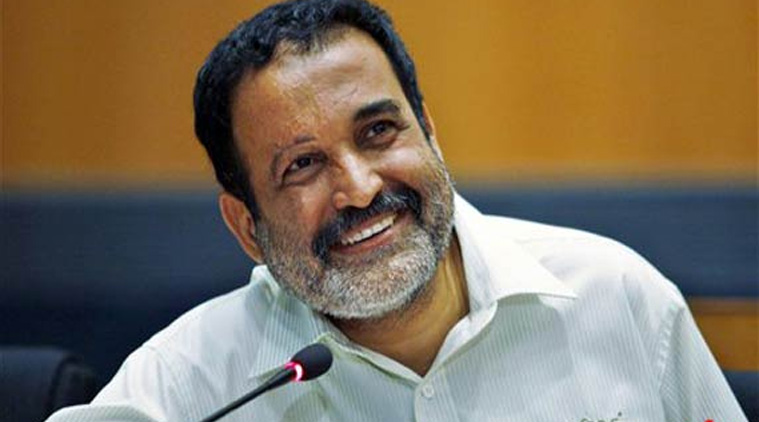EDUCATION MANAGEMENT – VOLUME IV – CHAPTER 4
MAKING THE GRADE
CHANGENGAGE

While you were working as a post graduate teacher, you would have nurtured a secret ambition to sit one day in the Principal’s chair. As a right thinking person, you would have decided that to reach that level you have to equip yourself with the skills needed to tackle the issues that the chair faces, to prepare yourself with the knowledge and experience this responsibility may need. So you might have approached your Principal and volunteered to shoulder more responsibilities of different types. You have gone through the hill and now you have been found to be fit for the Principal’s post. You have entered the corner Glass Chamber you have gained a STATUS. Now how are you going to gain a STATURE? The author wishes to help you with his experiences.
There will be a natural temptation to show yourself as different. This temptation has to be curbed. Remember the latin statement- ‘FESTINA LENTI’ – HASTEN SLOWLY. You wish to change butF before that you engage your staff. First ‘CHANGENGAGE” – that should be your slogan. Engage them first and then with their help reevaluate the position and make them work out the new changes.
Find out who among your staff have the potential to grow, have problem solving abilities, have the skills for team management and collaboration, have the talent to analyze, have a more strategic rather than an operational approach (with more emphasis on the “WHY”.
Observe how each staff member perceives His/Her work and the critical incidents that have impacted His/Her work -place behavior. See whether the teacher’s potential fits into the Institutional Culture. In an informal conversation find out how he perceives others. This will help you know a lot about his “Psychological Capital”, Values and His Personality. If he visualizes co -workers in a positive light then he may be able to contribute more to the school.
Never ask anyone ”What is your greatest weakness?”. They may camouflage the truth or disguise a positive trait as a weakness. By saying like “I am a perfectionist” or saying with an air “My tongue does not know to lie” or “My hands are clean”. After hearing those statements in an interview, when the author tried to verify his background, he found the converse to be true find out his/her inclination or proclivity to “Jump Ship”-to go grass hopping lured by greener pastures. Such a person can neither add value to the institution nor to himself.
Ask him to tell you about a situation in which he had to adjust quickly to an important change in the institution or his department and how it affected him?
Ask him to narrate a stressful interaction he has had with a parent/colleague and how he reacted to it.
Ask him to tell a point of time what he felt overwhelmed at work.
The answers for those questions will help you to understand if the teacher can maintain his performance under pressure or while facing changes or challenges in the work station.
While dealing with senior staff you may ask them to tell about a situation when he helped a
colleague with feedback or enrichment information to reinforce the colleague’s effective performance.
Ask him to tell you about any opportunity he has had to act as a resource person.
Ask him to tell you if at any time he had helped a colleague to up himself.
The answers for those questions will help you to understand if the teacher is equipped with
skills needed to strengthen the Junior’s team skills and ability to collaborate.
Ask him what excites him about his work. Ask him how he would do things differently in his
role if asked to do so. Ask him to tell about a moment when he had to go beyond and over his job role and how did he do it?
Five factors have to be looked into for a teacher:-
- Attitudes
- Values
- Capability
- Competence
- Copeability
While the last three can be developed, the first two are inborn and inherent in a person. So
they are more important than the other three. A competent person with an itching palm will not make
the grade.
Before attempting to lead others, a Principal “Turns into a leader if he or she is able to lead his or her own life with a sense of well being, face the world with equanimity and learn that unless you tap the personal power” within you. You cannot lead from “Positional Power” – The one that comes from your office and title” as advised by Ms. Anu Aga, Director, Thermax.

Ms. Anu Aga, Director, Thermax
She has some wise counsel to offer young aspiring Principals.
“When your institution is out of its depth and needs help, keep your ego aside and do not feel ashamed to ask for help. Since it is lonely at the top, a Leader has to balance the contradiction of being caring and yet not seeking popularity. By shunning unpopular and tough decisions without tolerance for genuine mistakes, a Leader cannot lead a vibrant organization. An institution is a collective effort. Do not think you are the greatest person on Earth and that without you the world will collapse. If you internalize these lines, you would be better off. Our stay on earth is short, our role dispensable and our impact in consequential. That does not mean that we do not do our best. We must do our damnedest, but in the end do not forget that we are all dispensable”. An advice for eternity!
The author has found that those who have started as Principals of a series of problem schools become Officers more quickly. His early experiences, working style and the economic situation at the beginning of his career affects his career trajectory and the way he functions as an officer.
LAKSHAMANA – AN ASSET TO RAMA

If you have a Vice Principal, much of your success depends on your relationship with him/her. To use business analogy it is like a relationship between the CEO (Chief Executive officer) and the CFO ( Chief Financial Officer) .
As a Principal you have a much broader functional perspective and responsible for taking crucial and tough decisions. The Vice Principal can appraise the Principal of the risks involved in pursuing a particular course of action. Having a “Positive Discord” strengthens the partnership between the Principal and the Vice- Principal. Both have a collaborative role in taking the school forward. They have to complement each other both in terms of personality and management style. Differences of opinion must be aired in an atmosphere of healthy mutual respect. All discussions must be result based.
The Vice Principal should have a proactive communications with the staff and students and should act as a useful link between them and the Principal. He should develop great credibility and influence a deep understanding of the school work, high integrity and thought leadership.
In short he should be a complement for the Principal.
Mick Jagger in “Rolling Stones” said:-
“You can’t always get what you want.
But if you try sometimes, well
You just might find
You get what you need”.
A CLEAR CALM MIND; A HEART FULL OF LOVE AND UNSULLIED HANDS
TRIPLE KEYS TO PEACE

Most of your problems arise when your mind wrongly classifies an object up desire as a “Need” rather than a “Want”. Then you experience strain and stress until you get the desired object. Your trouble starts when you mistake this object of desire for something on which your survival, your prestige depends. You hold your breath. You are tense and it is tiring, it is exhausting because wants are limitless. One comes to you. It makes you think on the next higher up in the order. Your mind will be at peace only when you learn to distinguish between your wants and needs.As Sri.J.Krishnamurthy ,the Philosopher said,” the moment your ambition is thwarted,pressure and stress start”.
The author has seen many Principals getting into trouble because of their endless wants and never ending desires. The author still remembers the photo he saw in newspaper in 1946 of a big officer telling his wife from behind the bars:-“You made me get what all you wanted. Are you happy now to see me here”? When wants overtake needs, when desires start galloping, accounts get fudged, bills are managed, payments made under the table – Nemesis takes over. Sloka 41 of Chapter 3 in Bhagwat Gita has something vital for you.
What is important is an ingrained system of ethical conduct. We cannot legislate conscience. It must be the sheet anchor of every transaction, ever decision and every judgment. Acting ethically according to conscience must become a part of an Executive’s personality and the core of his/her character.
BE A PLANTAIN AND NOT A BANYAN TREE

To make the grade, Stephen Covey tells you that “Management is efficiency in climbing the ladder of success. Leadership determines whether the ladder is leaning against the right wall. If the ladder is not leaning against the right wall, every step we take just gets us to the wrong place faster”.
Being a leader means you trust your team. You may be capable of doing everything and may try to it all. You may have the skills but it means that you are unable to trust your staff. Working over your staff’s shoulder is not really allowing him to work. Breathing down his neck means you are working through your staff as proxy.
Your actions must be governed by the ‘Inseparable Twins’ – Emotion and Belief. You should touch the head and the heart of your staff. What differentiates you from the run of the mill Principals would and should be your infectious emotional commitment?
To become a great leader Jack Canfield gives a simple formula:-

Jack Canfield
E + R = O
Events + Responses = Outcomes
Events+Reasoned Response = Positive Outcome (E+RR=PO)
Events + Excited Emotional Response = Negative outcome – E+ EER = NO
How we have responded earlier to an event determines the future outcome. “Great leaders make it a habit to respond in ways that generate the outcomes they want even during tough experiences or events seemingly beyond their control”.
The level 9 (The best in Managerial jargon in Blake and Mouton’s Managerial Grid) are different from others according to Jim Collins by their wonderful combination of personal humility and extraordinary professional will.
You can’t make the grade unless you help your staff also to make the grade. There are 10 factors which you have to look into.
The first and foremost is Valuing People. Make your staff feel included, motivated, empowered and know that their contributions are valued. Then you will see them passionately involved in their work with a sense of commitment. Decide with them and not for them.
Help the staff develop their full potential. Exhibit faith in their talent by giving challenging assignments which will stretch their limits.
Provide the staff a livable and loveable environment. Give them the best facilities to work. In one school the autho4r found a sofa set and AC and Fridge in the Principal’s room, but broken chairs and rickety tables in the staff room. No wonder there was an anonymous petition against him to his higher officers. Keep them fully engaged and empowered.
Understand that your talent is not yours only but YOUR TALENT is the sum total of the talents of all your staff. Accept that each one has a special and unique God- given talent which has to be discovered and developed. If you accept and appreciate them, they will adore you.
Keep the talent pipeline flowing. Identify young dynamic staff who have the fire in them, are self- propelled and eager to shoulder more responsibilities. Involve them in decision- making. Groom them for higher levels. The author spotted the would-be, could be and should-be Principals among the PGT’s and slowly over a period of time hammered them on the anvil of experience – by throwing them into situations – and helped them “Take a step or two higher in their transition towards ‘Hard’ Leadership skills.
The author used to fuel Passion and Purpose in his staff by encouraging team work and also ensure that they have fun at work.
Free Thinkers were appreciated and praised. Whenever a staff came up with an idea, the author would not only appreciate but say “I am happy you have enlightened me today with a new idea. Stoops to Conquer! You can afford to lose your prestige to win a teacher’s esteem.
In all staff meetings the author used to request the staff to speak out their minds. Be bold to air their views of course with all decency, dignity and decorum. He used to tell them – The first step to success is conquering fear – Fear of Failure and say that the essence of Bhagwat Gita is in Lord Krishna’s two words:-
- Ma Suchaha – Fear not
(Bhagwat Gita – Chapter 18 – sloka 66)
Give full Autonomy to the staff. Instill in them the confidence to take decisions. Help them call their own shots. Let them not wait for approval at every step. Granting of autonomy implies trust.
The author used to tell his staff to fail forward- making the failure as an experiment to move forward – one step closer to the goal. To fail is not a mistake. But not to bounce back fast is a blunder. Help them to flush out ideas that fail and march ahead as idea generators.
TRY THE DALTON PLAN
Sometime back, the Correspondent and Principal of a CBSE School met the author and discussed how to improve the performance of the Plus two students to an equal high standard in all subjects. The author narrated to them what Paolo Vitelli, Group President, “Azimut-Benetti Group” – Head of the world’s largest yacht making company did to maintain the Azimut quality.

Paolo Vitelli, Group President, Azimut-Benetti Group
In a press interview he said, “We have 25 activities that go into the boat building. We have introduced a system where every activity boss has to sign a sheet certifying the quality. We then test the boat in a swimming pool for 48 hours to correct obvious plans. Then it is tested in it’s natural element- the sea. The product has to be perfect at the end”.
The author said,” Apply this technique. Ask the 5 subject teachers to test at the end of every unit/lesson/topic thoroughly in an exhaustive way so that questions set test their understanding of the lesson in all its aspects. One period may be allotted for testing and one period for review and correction of mistakes and errors in understanding. Ask each teacher to keep a log book for each topic showing,

This will ensure that all students have understood every topic. This log book may be seen by the Principal at the end of the month.
Similarly at the end of a term a test may be conducted covering all the topics taught during the term, during the months of January, February & March for class XI. At least 3 tests may be held in each subject covering the whole portion covered through the year. This exercise shall be started from the beginning of Class X. In class XII, this same practice may be followed till December and during January and February 3 tests may be conducted covering all topics taught in 2 years. This will give a thorough grounding for the students. As the teachers have to certify for each topic, the onus goes to their shoulders. The teacher’s must see that every student has fully understood each topic and own responsibility for it. Accountability will lead to achievement. Try this method. This will help you make the grade.”
NEGLECT OR VISIBILITY?
 The author knew two Principals who were at two different extremes. One Principal was like a company County Head who is the custodian of his company’s reputation, relationships and overall management with no operational role. He is the face of the school, one who interacts with the Management, Education Depts., Teachers Forum, but rarely meets staff or students or parents. All this work he relegated to the Vice Principal who in course of time became the real power centre with everyone reporting to him. The Principal bypassed all and all bypassed him. This Principal was a thinker who had an intellectual bent, a flair for the abstract – with a Masters in Philosophy and Sanskrit.
The author knew two Principals who were at two different extremes. One Principal was like a company County Head who is the custodian of his company’s reputation, relationships and overall management with no operational role. He is the face of the school, one who interacts with the Management, Education Depts., Teachers Forum, but rarely meets staff or students or parents. All this work he relegated to the Vice Principal who in course of time became the real power centre with everyone reporting to him. The Principal bypassed all and all bypassed him. This Principal was a thinker who had an intellectual bent, a flair for the abstract – with a Masters in Philosophy and Sanskrit.
Another Principal was an “Adrenalin-Pumped Guy” who wanted to play an active part in running the show – Micro Management – A hand in everything. He wanted all to know that he was the only person who can call the tune and he wanted to be visible at every stage.
MANY INCIDENTS LEAD TO A SINGLE EVENT
The author, as a student of history, has seen great crises not caused by great causes. This applies to the field of Education also. In the Principal’s seminar the author used to tell the incident when the driver was driving the carriage having Archduke Franz Ferdinand of Austria. Unfortunately the driver took a wrong turn taking the vehicle down a wrong road not scheduled and halted at the place where a Serb student Gavrilo stepped forward and shot the Arch Duke. In fact, the student had planned to kill the Duke that morning. As he had failed in his attempt, he was going back home. But, the driver’s mistake made the assassination possible and it jump started a series of events which engulfed Europe in a war within a month.

Archduke Franz Ferdinand
Perhaps if Cleopatra’s nose had been an inch longer, Antony would not have invaded Egypt and all the events that followed the invasion would not have happened.
The author visited a school for inspection on behalf of CBSE. The Principal and Correspondent was one and the same persons. He had appointed Teachers on a consolidated salary of Rs.6000/- with another Rs.3000/-. through tuitions arranged by the Management itself, though the acquaintance register shows Rs.9000/- duly signed by the teacher. The Teachers agreed among themselves to share the questions and prepare their respective students. Though the students scored very high in these subjects they could not score so high in the other subjects. Parents started questioning and when these students went to the higher classes they could not understand because the poor level had its ripple effect.
YOUR WORK CHOOSES YOU
 TGTs may aspire for a higher level position. When you have to choose one from among many, see if he/she possesses the “Big-Heart” for the higher post. It may be like the proverb of picking a needle from the way stack. But the needle that you pick up should be glistening and proclaim loudly “Choose Me” because it has the caliber and stature necessary for that post. In 1909, the author wanted to choose a TGT to act as a Coordinator for the Middle section Class 6-9. He had observed the inter relationships between the TGTs during the previous year. He found that a (TGT Hindi) was always the person to whom the other teachers looked up for guidance for their personal/professional problems. So she became the author’s natural choice.
TGTs may aspire for a higher level position. When you have to choose one from among many, see if he/she possesses the “Big-Heart” for the higher post. It may be like the proverb of picking a needle from the way stack. But the needle that you pick up should be glistening and proclaim loudly “Choose Me” because it has the caliber and stature necessary for that post. In 1909, the author wanted to choose a TGT to act as a Coordinator for the Middle section Class 6-9. He had observed the inter relationships between the TGTs during the previous year. He found that a (TGT Hindi) was always the person to whom the other teachers looked up for guidance for their personal/professional problems. So she became the author’s natural choice.
Once the author found a Principal quite dejected and that reflected in his management of the school. On probing the author found out that the Principal was sullen and morose because the Asst. Commissioner had not complimented on two occasions when she expected it. The author told her, “ I am sorry you have mortgaged the keys to your happiness” to the Asst. Commissioner only. You are responsible for your happiness. Why do you expect compliment from the A.C.? He is a reserved person of a few words. He has already spoken to me about your work in appreciative terms. Nothing or none can prevent you from being happy. The happiness of the staff, the students and the parents –that is the greatest compliment to you. Next time you meet the A.C., tell him, by observing his method or working you have learnt a lot about how you should deal with the staff. You compliment him. Then see how it works. I know you and your talent. You should not lie down. Buck up and be your usual bubbly self”.
This pep talk put her back on the track.
During the allotment of duties at the beginning of the year, once the author shifted one PGT – from examination-in-charge to Coordinator of Co-curricular activities. That PGT asked why he had been shifted. The author said, “After the annual examination, I found that one TGT had altered the marks in the answer paper and the progress card and helped wrongly one student to pass. I discussed it with the Staff Secretary and when confronted, she confessed and repented. The mistake was corrected and I learnt from her that you were aware of this. You were “willfully blind”. Since you had known it ,the law will treat you as having abutted the crime as you did not prevent her from doing a wrong thing. You behaved as if you didn’t know it. Ignorance is no longer bliss.”
BE A PRIME MOVER

Robert B Miller, Gary Williams and Alden M Hayashi in their book “The art of selling your message” lists out five categories of decision makers as:
- Charismatics
- Thinkers
- Skeptics
- Followers
- Controllers
a) People with charisma, with their Plus X Factor. Something invisible, but something that attracts others. A pied piper who draws people to him and follow its directions willingly and happily – like Nehru, Gandhi, Churchill, M.G.Ramachandran.

MGR
b) The THINKERS – Are those who analyze deeply, think through the pros and cons. Sci-fi through a lot of information before arriving at a decision like Lord Mount Batten.

Lord Mount Batten
c) The SCEPTICS – They are the Doubting Thomases – pessimists who can never think positively – who always ask “can I”, Is it Possible” “Will it work” – doubt themselves and doubt others also and can never get things done – like Lt. Gen. Kaul.

Lt. Gen. Kaul
d) The FOLLOWERS – Unfortunately placed as a Head, but feels comfortable in following the suggestions of the staff or his higher authorities, so that if anything goes wrong, he can easily fix the scapegoat. Averse to risk and afraid of decision making – Like Richard Nixon

Richard Nixon
e) The CONTROLLERS – Task masters- have their own decisions. Expects all to obey and implement it. Doesn’t expect or like his staff to have a mind of their own. Either a Hitler or Idi Amin in a school – A Terror – like Indira Gandhi and Margaret Thatcher. Of those five, only the first two will make the grade.

Margaret Thatcher
DISTRIBUTE LEADERSHIP
 Another practice followed by the author will help you make the grade i.e. “Shared Leadership”.
Another practice followed by the author will help you make the grade i.e. “Shared Leadership”.
In every school the author shared his power and authority with some of his staff so that the pressure felt by staff will be divided among a few seniors and not be on one person. He used to share it with the Vice Principal, Middle School Coordinator and Primary H.M. and a Staff Council consisting of the Senior- most PGT, TGT, PRT, Specialist teacher and Lab assistant and Head Clerk.
Whenever the author went out to help other CBSE Schools, he had a meeting with all these and entrusted the school to them so that each one will take care of his/her segment. Authority was given but accountability also was ensured. The overall responsibility was the Principal’s of course.
During the KVS Jamboree in 1984 at Hyderabad, the author as KVS BS&G State Secretary nominated Sri. K.S. Nagaraja Rao, Asst. Commissioner, Hyderabad as the Administrative Head, a triumvirate of Mr. Gopalakrishnan, Mr. Kandhelwal and Mr. S.R. Sankaran as Academic Programme Coordinators and the author as the KVS Observer and Liaison Officer with the Andhra Pradesh Government in view of his wide contacts with officials of the Govt. of Andha Pradesh. This shared leadership was the main reason for the success of the Jamboree.
You can gain more insights into this concept of shared leadership if you scan through “Shared leadership” by Craig L. Pearce Jay A. Conger.
In this concept, leadership is not just a downward influence to the subordinates, but it is broadly distributed among the group members. Anyone who fits into a particular situation can lead and step back for others to lead on other occasions.
When the author was Dy. Director, , each staff member was allotted one village for intensive work. On any occasion even if all the staff visited one village, the whole planning organizing and execution were done by that village staff member only. Others were welcome to contribute their ideas. By this method all villages progressed well.
High interpersonal collaboration and higher appreciation of each other’s talent to contribute toward the total objective are important facilitators of shared leadership.
Many a time the author’s intuition or gut feeling has helped him to take decision. Intuition is like our peripheral vision that makes us aware of our surroundings. Our analytical skills are like the frontal vision to help us think precisely. Intuition helps us to sense a problem beforehand. Intuition helps us to translate our experiences into judgments and decisions.
YOU ARE YOUR FRIEND, YOU ARE YOUR ENEMY
RAISE YOURSELF BY YOUR OWN EFFORTS
If you want to make the grade, you have to avoid the following 7 deadly sins viz.,

1) IGNORANCE
You can’t hide under the cloak of ignorance. As a head you must be in the know of things. Mr. P.R. Chauhan, The author’s former Commissioner of KVS once told in a Principal’s conference:-
“If you sneeze at Trivandrum, I will catch cold at Delhi”.
2) DEFIANCE & DENIAL
Being a Principal don’t set a bad example by defying constituted authority. If you defy your higher officers, your staff will defy you and you won’t have the face to accuse them. They will simply say, “Look at yourself and then talk to us”.
Also don’t deny what you have said earlier as politicians do. Think before you talk. Be prepared to own responsibility for your words. If you constantly deny, your staff/parents will lose faith in you.
3) MISTRUST
Trust be gets trust. If you trust your staff, they will trust you. Behave in a trust- worthy fashion. Your reputation-that your words and actions are dependable, that you will stand by your word will add to your credibility.
4) WORSHIP
Never be an “Yes Minister” person. Don’t fawn or flatter your higher ups. They can easily
see through your drama. The way you behave with your higher ups, will make your staff lose all respect for you. Higher officers are not heaven- born. They are as human as you are perhaps with a little oversized ego than yours. When you become servile you lose your individuality, your Self-Respect. You will just become a door mat, an errand boy, ultimately a joker for them.
5) COMPROMISE
What you stand for and where you stand are important. You should have some core values on which you should never compromise. Once people know you are not holding to your principles and values, then they will start taking you for a ride. And more than that for whatever deviations and aberrations the staff commit, they will expect you to support and approve them.
6) ARROGANCE
Shakespeare very wisely said:- “Pride goeth before a fall”. Arrogance is just a big capital ‘I’ displaying a ” I know everything” “I can do everything” and “I am always right” attitude- a superiority complex that make you look down upon everyone else. The author knew a PGT who later on rose to occupy a very high position in the field of Education. When the author met him after his retirement, he asked that person, “What are you doing after retirement”. He replied, “I wear so many hats. According to the need I choose my hat”- wanted to show that he was very busy even after retirement. Arrogance will lead to alienation. Arrogance will lead to over confidence.
7) GREED
This is the beginning of the end. When “Needs” fade into the background and wants assuming a huge dimension become greed. It creates a chain of misdeeds ultimately leading to your downfall and disgrace. An itching palm will lead to all sorts of malpractices – one leading to another – from a small one to a big one. Finally, culminating in elevating you to the position of your becoming a “Guest of the government” for a long time to come”.
The above 7 faces of satan were listed by,
Sreekant H K Arimanithaya, V.P. HR Britannia Industries.
Sri Amulyah Sen, DGM, HR, Samsung India
Dr. Umapathy Panyala, CEO, Apollo Hospitals, Bangalore
Purva Misra, Senior VP , HR, Make My Trip
Ajit Menon, ED – DDB Mudra Group
Nikil Shah, President, HR, Omnitech Info Solutions
“Remember the dictum of Bhagwat Gita: Chapter Sloka 5.
“You are your Best Friend
You are your Worst Enemy
Your Rise and Fall are
In your hands only”.
ONE WHO KNOWS
– DIMENSIONS OF A PRINCIPAL –

- One who knows to reveal his power when someone becomes deviate and defiant.
- One who knows to change the way he feels, thinks and decides, knows to look from inside – out, challenge existing beliers, give up old illusions and search for the truth hidden inside him.
- One who knows that problems rise when he thinks the staff are not thinking like me doing as I like behaving as I want.
- One who knows to develop “Possibility thinking”.
- One who knows that his authority and the liberty of his staff have to be meshed to create a forward march for the school.
- One who knows that he should not compare himself with anyone – because the virtues he appreciates in others are already in seed from in himself and that he has only to nurture them
- One who knows that he should touch their lives every day in different ways such that later on they will be conscious that they would not be what they are if he had not been what he was.
- One who knows that to be truth full, he needs not to be aggressive or assertive.
- One who knows that negativity or aversion even for one person can guarantee a one way ticket to heel for sure
- One who knows that decision is always about choice. Choice is always confusing more decisions made, more confused when there is no confusion, there is no decision.
- One who knows that not pointing out a mistake also is a mistake when he points out a mistake, he thinks whether his action will make the other person more stressed or more aware.
- One who always asks himself the question: – Am I the fire that produces smoke and pollution? (or) Am I the flame of camphor that creates light and fragrance?
- One who knows that if he draws a picture of an any even with a sharp pencil still it will be bigger that an ant (or) if he draws an elephant even on a chart paper, still it will be smaller than an elephant. So, he knows that he should be as small as an ant or as big as an elephant according to the situation unaffected by what other say
- One who knows to control his anger when he has the power to show it and knows to use it but not lose it,
- One who knows that inside the miniature jack fruit (beginning stage) there is a small nut? When it suddenly becomes a big jack fruit there is a small nut inside each fruit. The nut is the same but is has evolved. He knows that the soul inside the calf, when it becomes a cow, is the same. It hasn’t acquired a big size it has evolved.He knows that so also it should be with as he ascends in life.
- One who knows that his school should provide his students with:-
- Vidya – Academic excellence
- Vigadam – Vocational education
- Balam – Health
- Yacha – Fame
- Punya – Acquired by own deeds
- One who knows that despite being lashed by high velocity winds and fighting to find a hold among crazy rocks. Some plants still manage to thrive in barren hills they survive the cold winter and come to life in spring. He knows that when he clings to faith and hope, he can cross over his problem.
- One who knows that people connect to those they like and those they are liked by and that it is important to make himself likeable – a person for with the staff would do anything.
- One who knows that he must be a combination of all these 3 :-
- A traditionalist
- A revivalist
- A futurist
- One who knows that those who show off rarely showed for the showdown
- One who knows to create space where he can explore new ways of being without getting struck in old ways?
- One who knows that he should not write a person off and that he can ignore him only at his own peril.
- One who knows that success requires both engaging and quitting
- One who knows that a ‘Yes’ at times and firm ‘No’ at another time are required to live wisely.
- One who knows to be a “Krishna” – One who attracts and one who is happiness personified.
- One who knows to compartmentalize his activities and shut off all others while focusing on one activity.
~~~~~
EMINENT THINKERS
(Whose ideas have been adapted for Education Management)

V. Mohandas Pai (Former CEO Infosys)
- Nalini Garg ( V.P (HR) Cococola India)
- Venkatesh (V.P. (HR) Educomp )
- G.Lafley
- Ban Charan
- Behnan N.Tabrizi (Harvard)
- Thomas Davenport
- Masahiro Take Degawd (CEO Honda India)
- Kathleen Taylor (President & CEO L. Seasons Hotel)
- Stelly Lazarus (CEO Ogilny & Matter Adut)
- Ellen J.Kullmom (CEO Dupont)
- Tracy Clarke (Grp Head H.R Stanchart Dank)
- Shalini Kholi (Max new York Life)
- B.Nanjappa (ING Vysa Life Insurance)
- Priti Kuchena (ICICI Prudential Life Insurance)
- Ramesh Chordia (LIC)
- Kapil Mehte (CEO DLF Life Insurance)
- Zuinj Irani (MD Cairns)
- Amithabh Jaipuria (MD Agri solutions Monsanto India)
- V. Mohandas Pai (Former CEO Infosys)
- S.Venkatesh (M.D. ESPN Software – India)
- Clement Atlee (Former PM of Britain)
~~~~~
Pure love is the chief manifestation of education. – Sri Sathya Sai Baba
(Place your comment/view about the article above.)




